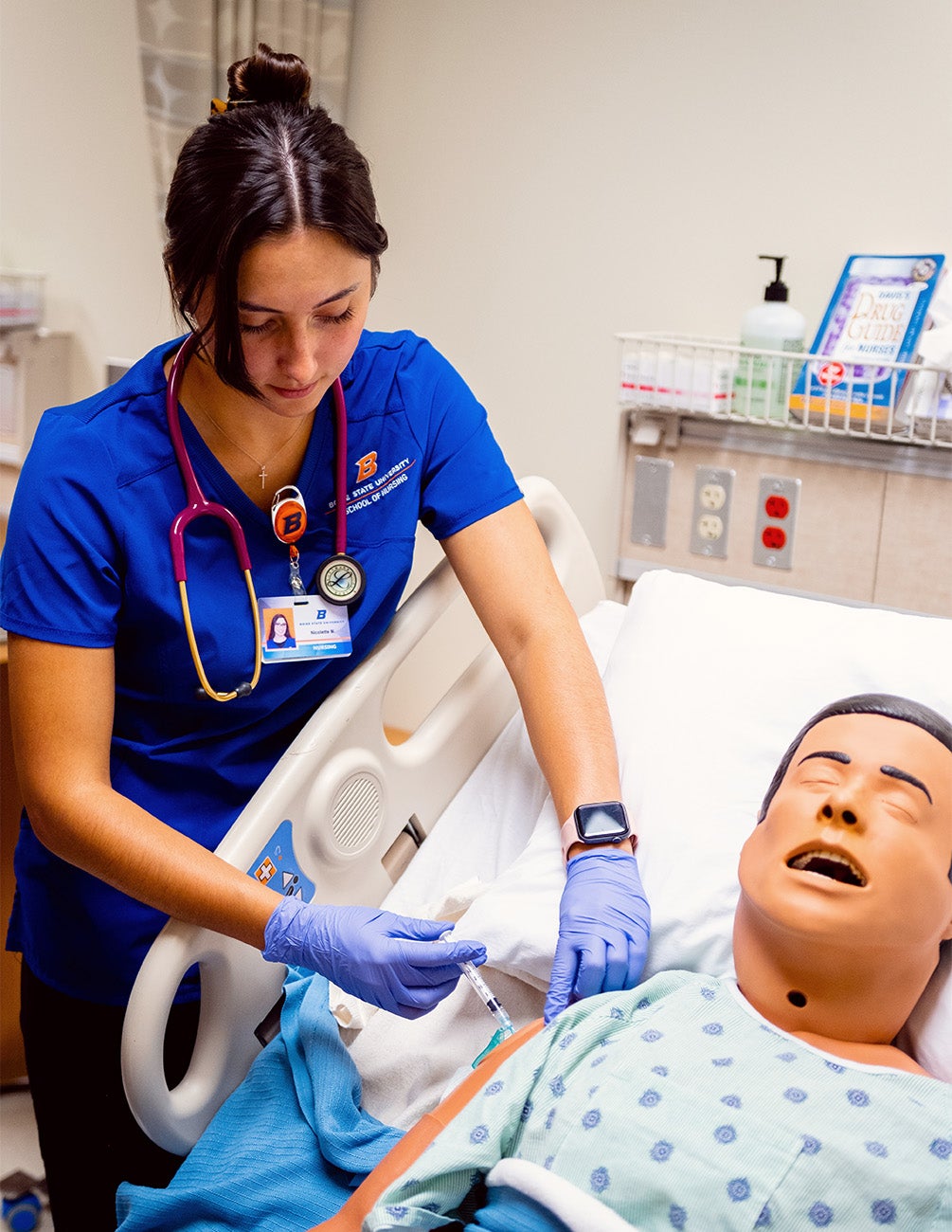Associate professors Lucy Zhao and Jenny Alderden recently published their work comparing risk factors of post-operative delirium between patients with dementia and those without dementia.

According to Zhao, delirium is a common surgical complication for older adults, reported in upwards of 50% of geriatric patients who had surgery for a hip fracture.
“Although the risk factors of post-operative delirium are well documented, there are few studies on the risks of delirium superimposed on dementia, especially among orthopedic patients,” Zhao said. “Our study examined the specific risk factors of delirium superimposed on dementia in patients with hip fracture surgery, and compared the differences in risk of post-operative delirium between patients with and without dementia.”
Senior Nicolette Missbrenner is also a third author on the project, calling the opportunity to conduct research with faculty and be published an “incredible honor.”

“My faculty have treated me as an equal and use their extensive experience to help guide me, not just in assisting with their projects, but furthering my education and encouraging my passions for research,” she said. “I’ve had the honor of working with Dr. Lucy Zhao the past year and a half, and it’s been amazing. Dr. Zhao has truly taken me under her wing to teach me how to start a literature review, collect and organize data, write a manuscript, and how to make professional corrections to send to a publisher.”
Part of Missbrenner’s work on this project involved coding to sort through data and neatly streamline their results.
“I was able to see a different side of nursing and healthcare as I could see how the numbers weren’t just numbers – they stood for actual people,” she said. “This helped my nursing experience as I was able to humanize the numbers I was using and realize that the research I was helping to conduct could truly make a positive difference in the field of nursing.”
Some of Missbrenner’s findings surprised her, like how similar delirium and dementia appear to be, despite being distinctly different conditions.

Delirium is a common neuropsychiatric condition prevalent in critically-ill patients – that is, a brain disorder that can negatively affect one’s central nervous system, behaviors, cognition, mood and perceptions. It is more prevalent among older adults, and is often hard to distinguish from dementia because of the shared cognitive dysfunction.
The team’s research lays the groundwork for the development of “tailored delirium interventions and preventive strategies based on specific risk factors the patients may have,” Zhao said. “We hope the study findings will enhance nurses’ understanding of the complex relationship between dementia, hip fractures, and post-operative delirium.”
Missbrenner agreed; her biggest takeaway from the project was how important it is for nurses to be able to distinguish between delirium and dementia so they can implement practices to prevent delirium from occurring.
With impacts beyond this specific project, Missbrenner’s work also solidified her passion for critical care nursing research.
“After graduating [in May 2024], I plan on continuing research, as I now feel very strongly that the research we conduct in nursing could have a significant positive impact on the future of nursing, medicine, and healthcare in general,” she said.
Read their article: Dementia and Postoperative Delirium in Surgical Hip Fracture Patients